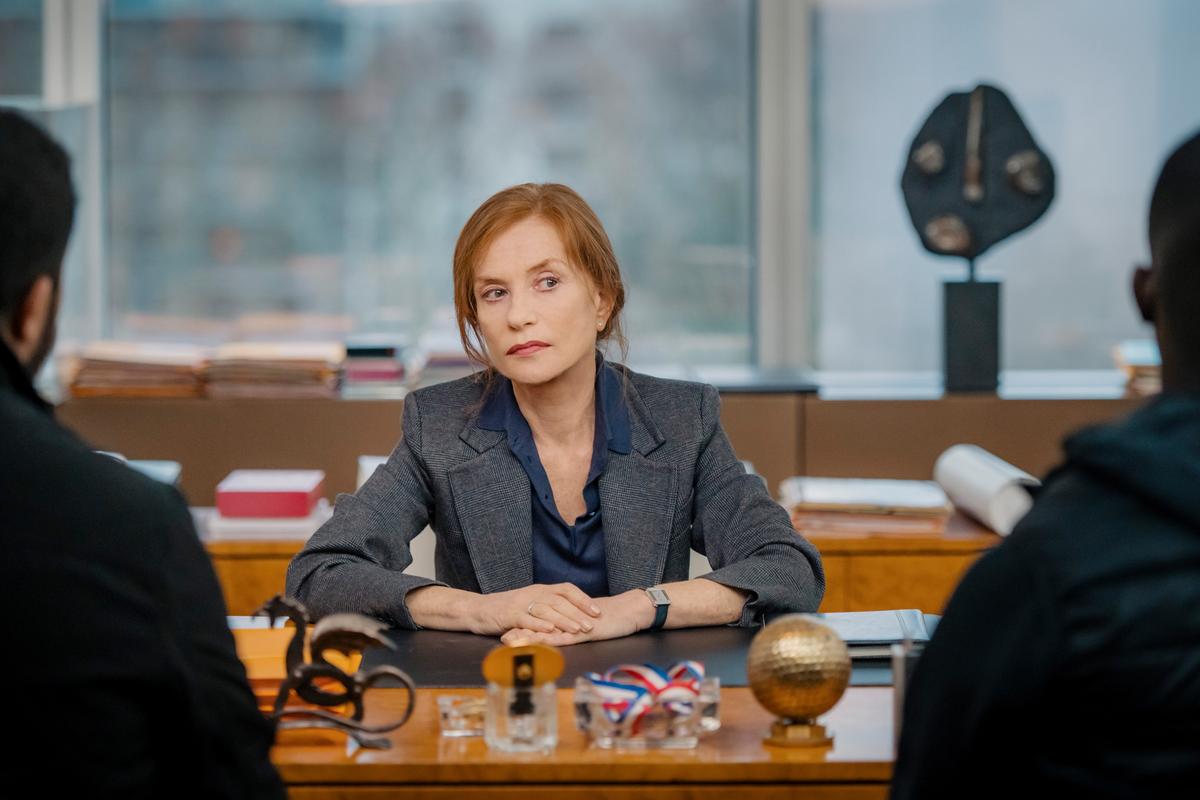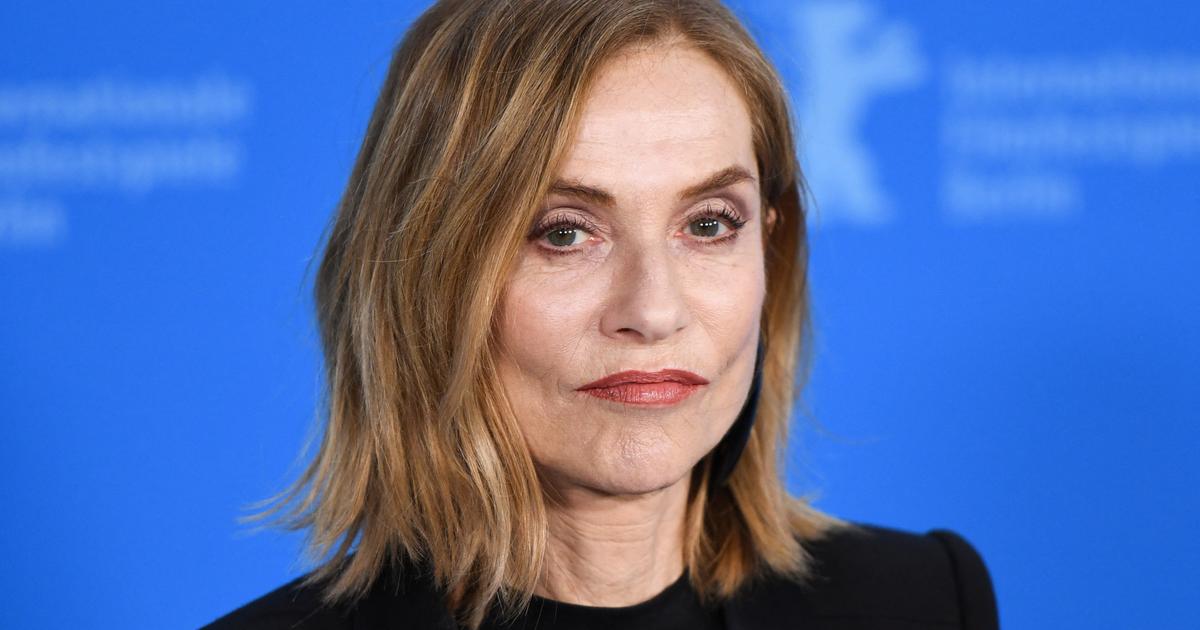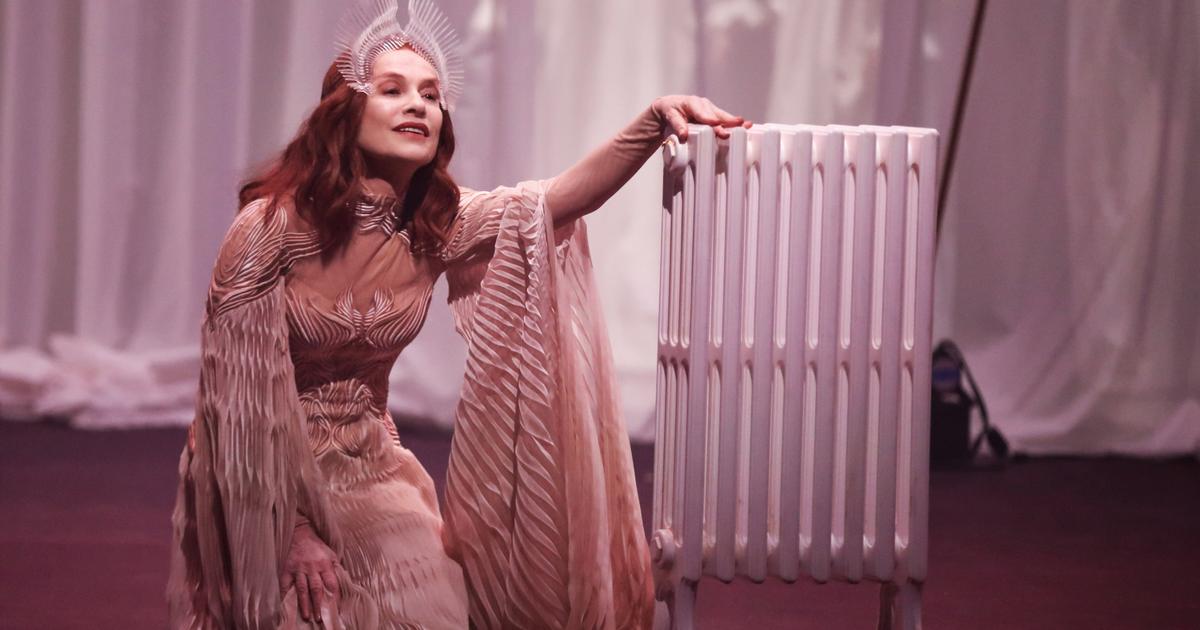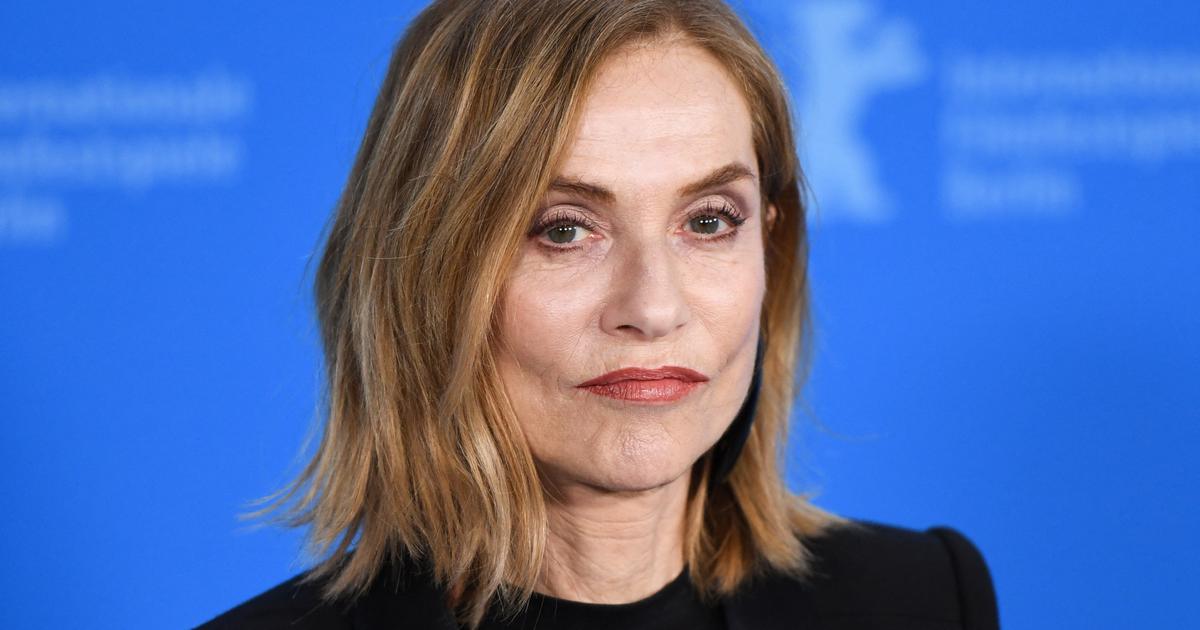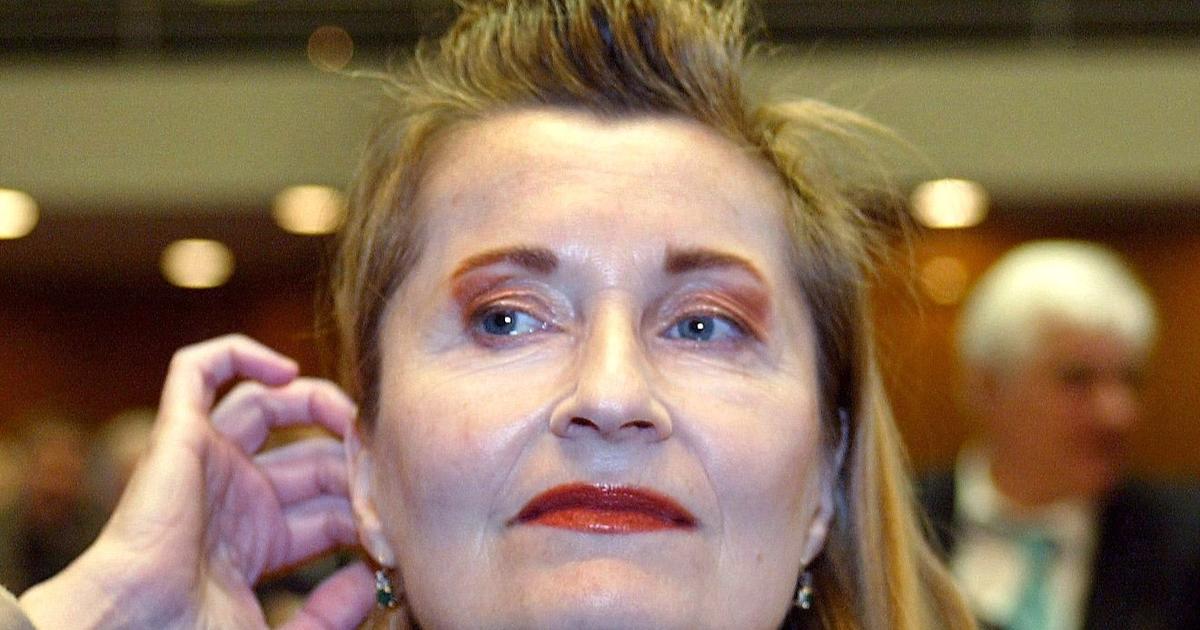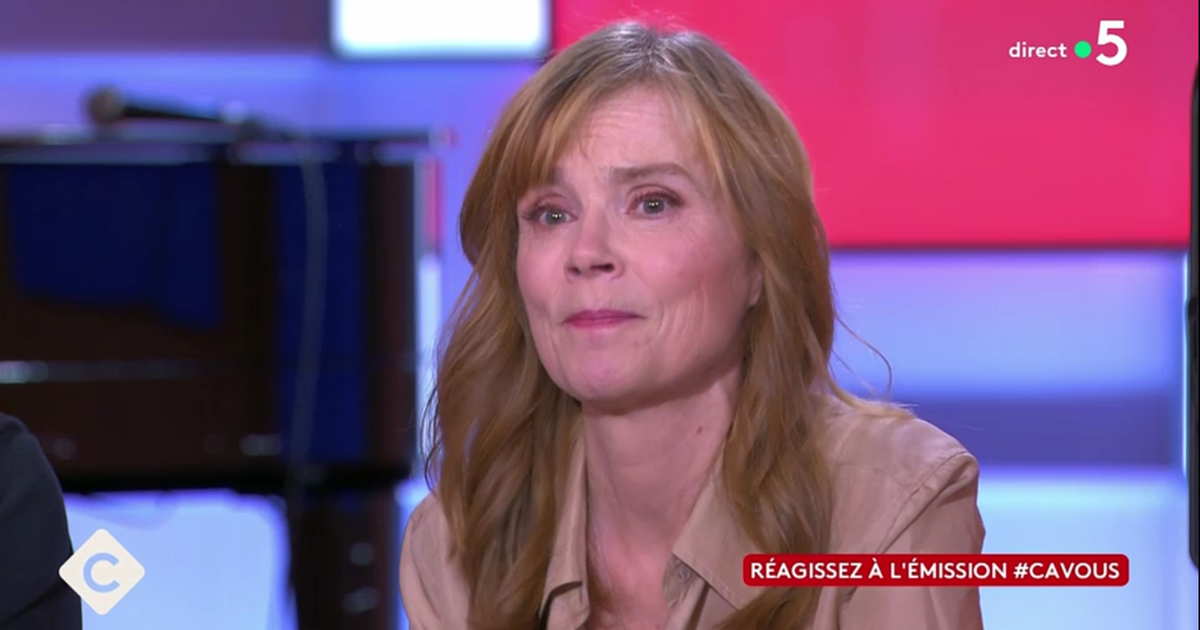The weather is nice in Lisbon, where Isabelle Huppert is playing
La Cerisaie
, by Anton Chekhov, in a staging by the Portuguese Tiago Rodrigues, a play which she will perform in Paris, at the Théâtre de l'Odéon (1) when, almost immediately after,
Les Promesses
(2), by Thomas Kruithof, the story of Clémence, mayor of a city in Seine-Saint-Denis, who fights a fierce battle with his chief of staff (Reda Kateb) to save a city undermined by insalubrity.
Three other films are expected during the year (3).
A busy schedule to which Miss Huppert, Stakhanovist of the stage and sets, has accustomed us.
Playing is not a need but a necessityIsabelle Huppert
Where does this incessant need to play or tour come from? "It's not a need but a necessity," she replies calmly, rejecting the word "need" which she considers cumbersome, and confiding, in addition, that she is "lazy." Who can believe it in view of his prodigious career? From her first roles, she distinguished herself by this very personal mixture of insolence and distance, of risk-taking and innocence, of coldness and sensuality. In 1977, Claude Goretta offered her her first major role in
La Dentellière
, and the following year she met Claude Chabrol, her film father, for whom she shot
Violette Nozière .
, which won him the interpretation prize at Cannes.
His career is launched at a gallop.
More than a hundred films follow all over the planet, not to mention her multiple roles in the theater, her public readings, her activity as a producer.
In video, three questions to Isabelle Huppert
And her many awards: two prizes for female interpretation at Cannes, two Césars, an Oscar nomination, a string of statuettes won at the Venice Film Festival, the Berlin Festival, those in Moscow, Locarno or Shanghai, without forget an honorary Molière. She assumes her desires, constantly impels projects, meets the directors who interest her and shoot for them, such as the Korean Hong Sang-soo or the Japanese Hirokazu Koreeda.
What is she looking for? " Me ? But I'm not looking for anything. The pleasure of playing with intelligent people is enough for me. I realize that it is a huge privilege. »
Madame Figaro
.
– You said that certain roles contain a part of you. What is the one covered by the character of Clémence, in
The Promises
?
Isabella Huppert. –
We must not generalize.
Sometimes I have nothing in common with the roles I play.
Simply, by dint of rubbing shoulders with them, I end up resembling them.
Collusion with a character is the result of the necessary appropriation that must take place between the actor and his subject in order to be able to interpret it.
I feel a certain empathy for Clemence.
She evolves, goes through different emotional stages that change her perception of herself, her relationship to others and to the function of mayor that she exercises in a difficult city of 93. I like her political courage, her determination and , at the same time, his detachment.
This is his last term.
She does not intend to represent herself.
The Promises, a film by Thomas Kruithof with Isabelle Huppert and Reda Kateb.
hurry
Until he was offered to enter the government…
This proposal rekindled his desire to continue politics. But a brutal phone call from an adviser to the president puts an end to his hopes. This failure will rekindle and increase her need for power and conquest tenfold. Not necessarily under the best aspects elsewhere. This is what makes the complexity of this character evolving in a world made up of appearances, convictions and ambitions. Clémence and Yazid, his chief of staff, wonderfully played by Reda Kateb, both embody these contradictions of the political world.
Is Les Promesses
a timely film, today, in the midst of the presidential election campaign?
Yes, but at the same time, it's a film that always hits the spot. This film is not an x-ray of the current world, but the description of mechanisms as old as the world, with its promises and its betrayals. The film does not take a definitively pessimistic look at this world. The director does not want to offer a Manichean vision of it, but rather to show its complexity, contradictions and subtleties. People are not totally good or totally bad depending on where they are on the board.
Don't you find that this film has accents close to those of Ken Loach's films?
Yes, in the description of a social reality where individuals crushed by the system manage, through courage and perseverance, to circumvent it. In the same way, Thomas Kruithof's film shows the confrontation between two worlds: those who are close to reality and suffer from it, and those who are very far from it and make the decisions. It's not just a political film or a film about power. It offers an aesthetic and humanist vision that takes you elsewhere. Fortunately. Otherwise why go to the cinema? Just read the newspapers...
You will soon be playing
La Cerisaie
in Paris , a political play about the end of a world, downgrading, the confrontation between social classes.
Finally, a universe not so far from that of Thomas Kruithof, right?
The greatest authors have always talked about politics in different ways depending on the period.
Chekhov's text is staggeringly premonitory.
He felt the premises of the revolution and the advent of a new world.
The intelligence of Thomas' film is to embody its subject through individual destinies.
The theoretical and collective statement never takes precedence over emotion.
Everyone can identify with and feel touched by one of the characters.
This film has nothing ideological.
The Cherry Orchard by Anton Chekhov with Isabelle Huppert.
Christophe Raynaud de Lage
You have a ternary rhythm that is unique to you in the way you approach your roles in general: first, a form of passivity or even indifference, then passion, until the passage to the act which is the third phase. . Do you agree with this observation?
I'm not aware of it.
If there is a ternary rhythm, it is because it is already in the writing that accompanies the fulfillment of a destiny.
This getting started is the very principle of cinema and of life.
How do you work on your roles?
I don't work on them.
You know, I'm very lazy.
Truly ?
I think about my roles up front, and then everything happens in an immediate and unpredictable way.
And is that enough?
It would seem so.
More than work, it is a reverie that is triggered around a text or a future meeting with a director or with a filmmaker.
So, you think, you find yourself on a set, you hear "engine" and, presto, you leave?
First of all, it's not “hop”.
Cinema is precisely the collusion of loads of desires and imaginations that come together in a brutal and decisive way.
It is the cinema that manufactures this miracle, and we must trust it.
And in the theatre, what is different?
A role is made in the same way with, in addition, the fragility represented by the projection in front of spectators.
The theater repeats itself, and despite this repetition, the spectacle is never quite the same.
This is desirable if one does not want to be locked into routine and if one wants the roles to be embodied and not just played.
Isabelle Huppert, a French actress.
Philippe Quaisse / Pasco
Are you afraid of emptiness? Do you need projects to follow each other quickly?
If you hang me around a rope, yes, I would be afraid.
Otherwise, no, not that much.
And then, I don't like the word project.
He's too predictable.
I hope we can imagine life in a more inventive and unexpected way.
There is something more involuntary than we think in the things we do.
I knew very early that she was the place I wanted to hold in my lifeIsabelle Huppert
In most of your roles, you are an oxymoron: passionate and cold, perverse and innocent, indolent and calculating…
I hope so.
This is what makes the richness of the characters: being able to make them say one thing and its opposite.
Between, there remains an empty space in which everyone can rush and make their own interpretation.
One last thing. What do you think of the MeToo movement?
He did well to arrive.
It was time.
Me, I didn't wait for it to assert myself as a woman.
I knew very early on that it was the place I wanted to hold in my life: to decide, to accomplish myself, to be the first.
It was a necessity for me.
(1) “La Cerisaie”, until February 20 at the Odéon-Théâtre de l'Europe, in Paris. (2) “The Promises”, by Thomas Kruithof, released on January 26. (3) “Mrs. Harris Goes to Paris”, by Anthony Fabian, released on February 25. "The Shadow of Caravaggio", by Michele Placido, released on April 20. "About Joan", by Laurent Larivière, soon.
The editorial staff advises you
Isabelle Huppert: “You never completely disappear behind a character”
Isabelle Huppert empties her bag
Alicia Vikander: “Becoming a mother made me see life in a different light”

